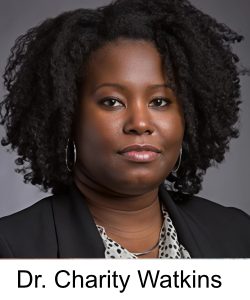Education & Health
FCR HEAD START & EARLY HEAD START

Chatiba Bullock
Education Area Manager
Developing young minds through play-based learning and nurturing their curiosity for a lifetime of growth and discovery.
A good teacher is like a candle—it consumes itself to light the way for others.
Giving children a head start in health and addressing disabilities early can have a huge impact on lifelong wellbeing.
Healthy children are more likely to attend school and are better able to learn.
Welcome to the Wonderful World of Early
Childhood Education & Health
The Head Start and Early Head Start programs recognize that early childhood development is foundational and critical in the overall health and success of a child. Children who receive proper nutrition, physical, and emotional support during their first years of life have a better chance of reaching their full potential and succeeding academically and socially.
In addition, research shows that experiences during early childhood have a long-term impact on the brain’s architecture, affecting a child’s ability to learn and socialize positively. Therefore, providing quality early childhood education and health care ensures a healthy future for our children, reduces long-term health disparities, and positively impacts society as a whole.
The Head Start and Early Head Start programs also recognize that early childhood development is foundational and critical in the overall health and success of a child. Children who receive proper nutrition, physical, and emotional support during their first years of life have a better chance of reaching their full potential and succeeding academically and socially.
The education & health team:
Center directors are responsible for overseeing the daily operations of Head Start programs, which provide early childhood education and support services to low-income families. They ensure compliance with federal regulations and program performance standards, such as conducting annual self-assessments and ensuring the safety and well-being of children and staff. Center directors oversee hiring, training, and supervision of staff, including teachers, family service workers, and administrative staff. They collaborate with community partners to provide additional services to families, such as health screenings, nutrition education, and mental health support. Center directors also manage budgets, grants, and fundraising efforts to support the program’s financial sustainability. They serve as advocates for families and promote community engagement to enhance program outcomes.
Head Start teachers play a critical role in promoting the development and early learning of young children. They are responsible for planning and implementing developmentally appropriate activities that foster social-emotional, cognitive, and physical growth.
Teachers also monitor children’s health and well-being and make referrals for necessary services as needed. Furthermore, Head Start teachers create a safe and nurturing learning environment that is inclusive of all children and promotes a love for learning.
Finally, teachers in the Head Start program are also responsible for ongoing evaluation and assessment to ensure that their lesson plans and activities are meeting the needs of each child in their care.
School readiness coaches in the Head Start program play a critical role in ensuring that children are prepared for academic success. They work with teachers and families to create developmentally appropriate learning goals and strategies that meet the unique needs of each child. Coaches provide ongoing professional development and training to teachers and staff on topics such as early childhood education, child development, and effective instructional strategies. Additionally, they collaborate with families, helping them to understand the importance of early learning and how to support their child’s academic and social-emotional development at home. By promoting school readiness and equipping teachers and families with the tools they need to support young learners, school readiness coaches help children start on the path to academic success and lifelong learning.
 The Home Based component in the Early Head Start program is a service option that assists children and families in their own homes. It provides comprehensive services to low-income parents who are pregnant or have a child under age three. Early Head Start staff develop a partnership with families to enhance the parent-child relationship and promote child development. Home visitors meet with families regularly to provide parenting information and support, facilitate child learning and development, and involve the family in community services. This component provides individualized services to meet the unique needs of each family. Home Based services are usually provided weekly and include child-focused activities, parent-child activities, and group socialization opportunities. The goal of the Home Based component is to strengthen families and promote the healthy development of young children.
The Home Based component in the Early Head Start program is a service option that assists children and families in their own homes. It provides comprehensive services to low-income parents who are pregnant or have a child under age three. Early Head Start staff develop a partnership with families to enhance the parent-child relationship and promote child development. Home visitors meet with families regularly to provide parenting information and support, facilitate child learning and development, and involve the family in community services. This component provides individualized services to meet the unique needs of each family. Home Based services are usually provided weekly and include child-focused activities, parent-child activities, and group socialization opportunities. The goal of the Home Based component is to strengthen families and promote the healthy development of young children.
 Children enrolled in Head Start with disabilities are identified through a comprehensive process that includes screening, assessment, and individualized support. The program uses the Head Start Early Learning Outcomes Framework and the Child Find mandate, which requires states to identify and evaluate children with disabilities from birth to age five. Screening is the first step and involves observing a child’s behavior and developmental milestones. If a child is identified as potentially having a disability, a more in-depth assessment is conducted. An individualized education program (IEP) is then created to meet the child’s specific needs, and early intervention services are provided, such as speech therapy, occupational therapy, or special education. The program also offers other supportive services, including family engagement and mental health services. By providing early identification and intervention, the Head Start Program helps children with disabilities overcome obstacles and reach their full potential.
Children enrolled in Head Start with disabilities are identified through a comprehensive process that includes screening, assessment, and individualized support. The program uses the Head Start Early Learning Outcomes Framework and the Child Find mandate, which requires states to identify and evaluate children with disabilities from birth to age five. Screening is the first step and involves observing a child’s behavior and developmental milestones. If a child is identified as potentially having a disability, a more in-depth assessment is conducted. An individualized education program (IEP) is then created to meet the child’s specific needs, and early intervention services are provided, such as speech therapy, occupational therapy, or special education. The program also offers other supportive services, including family engagement and mental health services. By providing early identification and intervention, the Head Start Program helps children with disabilities overcome obstacles and reach their full potential.
 Dr. Charity S. Watkins is an accomplished assistant professor in the Department of Social Work at North Carolina Central University, where she has been a tenure-track faculty member since January 2018. In addition to her role as an educator, Dr. Watkins is a provisionally licensed outpatient therapist, bringing a unique blend of academic expertise and practical experience to her work.
Dr. Charity S. Watkins is an accomplished assistant professor in the Department of Social Work at North Carolina Central University, where she has been a tenure-track faculty member since January 2018. In addition to her role as an educator, Dr. Watkins is a provisionally licensed outpatient therapist, bringing a unique blend of academic expertise and practical experience to her work.
She holds a Ph.D. in Social Work, earned in May 2019 from the prestigious School of Social Work at the University of North Carolina at Chapel Hill. Her doctoral dissertation, titled “Parenting to Beat the Odds: How Low-Income African American Parents Promote Children’s Academic Resilience in Elementary School,” reflects her commitment to understanding and addressing the challenges faced by socioeconomically marginalized Black children.
Dr. Charity s. Watkins is an accomplished assistant professor in the Department of Social Work at North Carolina Central University, where she has been a tenure-track faculty member since January 2018. In addition to her role as an educator, Dr. Watkins is a provisionally licensed outpatient therapist, bring a unique blend of academic expertise and practical experience to her work.
The Head Start program provides nutrition in several ways. Firstly, they provide free healthy meals and snacks that meet the dietary guidelines of the USDA. The meals are served in a family-style setting, where children and teachers eat together, and this allows children to learn from adults about healthy eating habits and table manners.
Secondly, Head Start program offers nutrition education to both children and parents to help them make healthy food choices. Nutrition education involves activities such as cooking demonstrations, gardening, and other interactive activities that promote healthy eating habits.
Finally, the Head Start program employs nutrition professionals who assess the nutritional needs of each child and provide individualized nutrition plans to ensure that they receive the right balance of nutrients that they need for healthy growth and development. Overall, nutrition is a critical component of the Head Start program, and it plays a significant role in promoting the health and well-being of young children and their families.

Head Start Education Team includes:
Education Manager
Center Director
Head Start Assistant Teacher
Early Head Start Lead Teacher
Head Start/Early Head Start Assistant Teacher
Head Start/Early Head Start Teacher Aide
Infant/Toddler Teacher
School Readiness Coach
Nutrition Aide
Wellness & Inclusion Team includes:
Family & Mental Health Manager
Disabilities Advocate
Health & Disabilities Specialist
Health Technician & Compliance Coordinator
CACFP Program Administrator
Wellness Consultant
Partnerships Team includes:
Lead Teacher CCDC
Assistant Teacher CCDC
NC Pre-K Lead Teacher | CCDC
NC Pre-K Assistant Teacher | CCDC